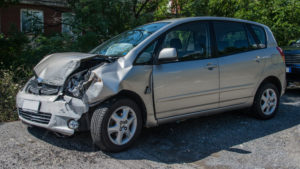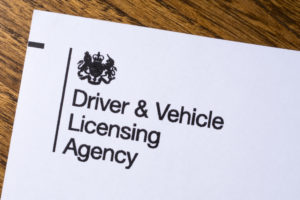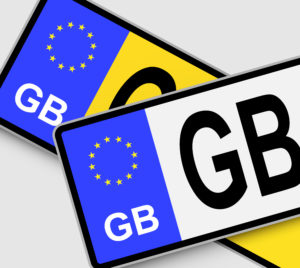
Things to know before scrapping your car
There are usually a couple of reasons why someone would want to scrap their car. Either, it has reached the end of its life and repairing it will cost more than the car is worth. Or secondly, the car can’t be repaired. Or thirdly, has been involved in an accident and it is an insurance write-off. Two scenarios are judged by the value of the car versus the cost to fix it. As an example, a 2003 Vauxhall Corsa that needs a new engine would likely be put to scrap. This is because the cost to repair it would be in excess of £1500. And in the current market, the car is only going to be worth about £800. In this case, the cost to repair the car outweighs its value. So it wouldn’t be deemed a worthwhile investment.
The process to put your car to scrap varies depending on if it is an insurance write-off or an independent scrappage. In this article, we’ll take you through what you need to know before scrapping your car.
How to scrap your car
 First, you must decide if you want to scrap the car as a whole or remove any parts from it. The option to remove parts from the car before you scrap it is useful if you have another car you’d like to repair or if you want to sell some of the parts on. If you’d like to remove some parts from the car before sending it to be scrapped then you must notify the DVLA that the car is off the road. This is sometimes called a ‘Statutory Off Road Notification’ (SORN). You can do this online at the government DVLA website.
First, you must decide if you want to scrap the car as a whole or remove any parts from it. The option to remove parts from the car before you scrap it is useful if you have another car you’d like to repair or if you want to sell some of the parts on. If you’d like to remove some parts from the car before sending it to be scrapped then you must notify the DVLA that the car is off the road. This is sometimes called a ‘Statutory Off Road Notification’ (SORN). You can do this online at the government DVLA website.
Then you’ll need to find what’s known as an authorised treatment facility. More commonly these are referred to as scrappage yards or breaker’s yards. Contact your chosen scrap or breaker’s yards and obtain a quote. Many of these services offer an online quote service and will also be able to collect the vehicle for scrapping. You can find an approved treatment facility (scrap yard) on the government website.
When your vehicle is collected be sure to pass on your vehicle log book (V5C) form and keep the yellow slip V5C/3 from it. This is so you can inform the DVLA that the vehicle has been put to scrap. You must inform the DVLA if you scrap your vehicle. Failure to do so can result in a £1000 fine.
Informing the DVLA
 The process to inform the DVLA is straightforward, all you need to do is locate the 11 digit reference number from the V5C/3. This is the yellow part of the vehicle log book mentioned above. Get the scrapyard to fill in their details on this part of the log book. It will be labelled the transferring or selling your vehicle to a motor trade, an insurer of dismantler. Then send this to the DVLA by post.
The process to inform the DVLA is straightforward, all you need to do is locate the 11 digit reference number from the V5C/3. This is the yellow part of the vehicle log book mentioned above. Get the scrapyard to fill in their details on this part of the log book. It will be labelled the transferring or selling your vehicle to a motor trade, an insurer of dismantler. Then send this to the DVLA by post.
You can also inform them online using their web tool.
When informing the DVLA that your car has been scrapped using their online tool remember to put the scrap yards details in the section asking who you’ve sold the vehicle too. You must do this even if you didn’t get any money for the car. Then destroy the log book, if the scrapyard does not require it.
What if I don’t have a log book?
If you don’t have a log book for the car you are scrapping then you must write to the DVLA. They will need to know the vehicle’s registration number, along with the make and model of the car. You must also clearly specify the exact date the car has been scrapped and the name and address of the scrap yard you’ve used.
Note: On some occasions, your insurance company will scrap your car as part of their service. In this instance replace the scrap yards details with your insurance companies details on all of the above correspondence.
The DVLA postal address is
DVLA
Swansea
SA99 1BD
Scrapping an insurance write-off
When you make a claim with your insurance company they will tell you if the vehicle is a write-off and how much they are willing to award you against your insurance policy. The damage doesn’t need to be a serious fault for the car to be written off. As mentioned above, a write-off covers when a car can;t be repaired or any repair that costs more than the car is worth, even if it is cosmetic. The DVLA showcase 4 categories of insurance write-off on their website.
| Category | Repairing the vehicle | Using the vehicle |
|---|---|---|
| A | Can’t be repaired | Entire vehicle has to be crushed |
| B | Can’t be repaired | Body shell has to be crushed, but you can salvage other parts from it |
| C | Can be repaired, but it would cost more than the vehicle’s worth | You can use the vehicle again if it’s repaired to a roadworthy condition |
| D | Can be repaired and would cost less than the vehicle’s worth, but other costs (eg transporting your vehicle) take it over the vehicle’s value | You can use the vehicle again if it’s repaired to a roadworthy condition |
Your insurance company will arrange scrappage for you so your first step is to provide your insurance company with the V5C log book. Before you send it to them, remove the yellow section named ‘Transferring or selling your vehicle to a motor trade, an insurer of dismantler’.
What if I want to keep the vehicle?
If your vehicle falls into category C or D, you might choose to keep the vehicle. In this instance, the insurance company will award you the payout from your premium and sell the vehicle back to you. The process with the DVLA is free but does involve some paperwork. You must send the complete log book to the insurance company and apply for a duplicate logbook using the V62 form online.
Keeping the registration
 If you would like to keep the registration from your car that is going to scrap to transfer to another vehicle straight away or in the future then you must apply to the DVLA to do so. Check that you are eligible to keep the registration for your car. The vehicle registration number will be kept in the name of the current registered keeper of the car.
If you would like to keep the registration from your car that is going to scrap to transfer to another vehicle straight away or in the future then you must apply to the DVLA to do so. Check that you are eligible to keep the registration for your car. The vehicle registration number will be kept in the name of the current registered keeper of the car.
The registration number will be retained in the name of the registered keeper. You’ll need to remove the number before you sell or destroy the vehicle, or you’ll lose the right to use it.
Your registration number will be removed straight away if you apply online and costs £80.
Will I get a tax refund
If you are sending your car to be scrapped and have pre-paid for tax on the vehicle then you will be entitled to a refund of any full months outstanding on your account. The process is automatic when you inform the DVLA that your car is being scrapped. They will cancel any active Direct Debits for car tax and process a cheque containing your vehicle tax refund. The cheque will be sent to the registered keeper on the log book.
Will I get confirmation that my car has been registered with the DVLA?
Yes, as long as you provided the DVLA with your email address you will receive an email confirmation. In addition, you will also receive a letter by post confirming that you are no longer the registered keeper of the vehicle. Any due refund of vehicle tax will also be included.
I hope you’ve found this guide to scrapping your car useful. For more information visit the DVLA website.

This was a great information about the resolving of issue permanently in a car during driving easily by using the service of Victoria car removal in Melbourne with in a short period of time a start your journey safe and fast without any trouble shoot ,If your car is still running before you sell it to the junkyard due to any kind of issue then you must use the service of car removal in Melbourne , you might want to use up the gasoline in the tank before you have it towed away. Depending on the size of the tank in your car or truck, the value of the gasoline in the tank can represent a substantial portion of the total value of the price you’re getting from the junkyard. If your car isn’t running, be careful if you attempt to siphon gasoline from the tank. Use only approved containers to carry the gasoline, and never start a siphon using your mouth. Don’t worry about the value of the gas to the junkyard. They’ll have to drain all the fluids out of your car before recycling or scrapping the parts, and gasoline in the tank is a nuisance for them.
Thanks .